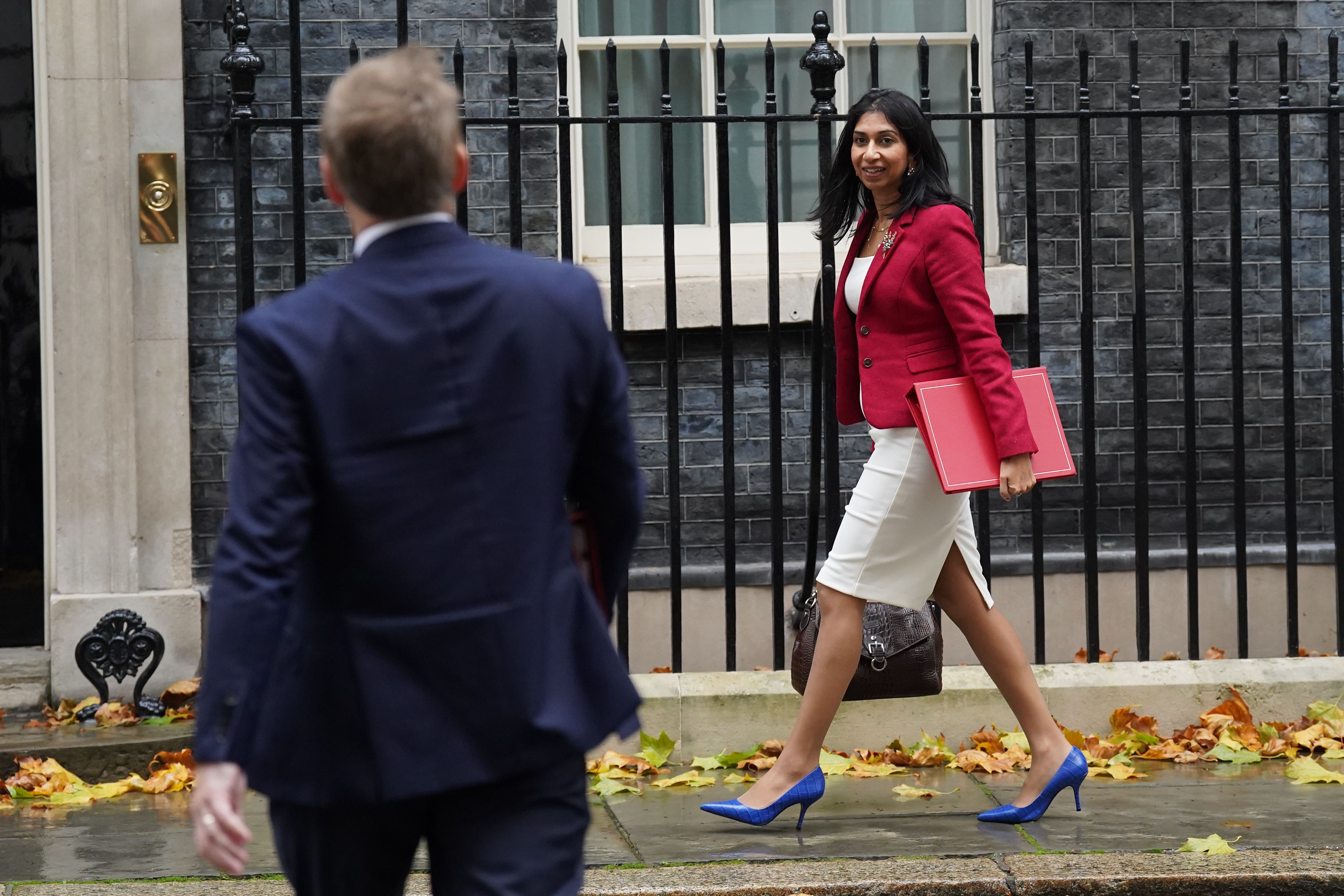Home Secretary: Force chiefs should embrace ‘back to basics’ approach to policing
Suella Braverman announced plans for the College of Policing to review entry routes for officers without a degree.

Your support helps us to tell the story
From reproductive rights to climate change to Big Tech, The Independent is on the ground when the story is developing. Whether it's investigating the financials of Elon Musk's pro-Trump PAC or producing our latest documentary, 'The A Word', which shines a light on the American women fighting for reproductive rights, we know how important it is to parse out the facts from the messaging.
At such a critical moment in US history, we need reporters on the ground. Your donation allows us to keep sending journalists to speak to both sides of the story.
The Independent is trusted by Americans across the entire political spectrum. And unlike many other quality news outlets, we choose not to lock Americans out of our reporting and analysis with paywalls. We believe quality journalism should be available to everyone, paid for by those who can afford it.
Your support makes all the difference.Police forces “must be open” to people who “do not have a degree or want one”, the Home Secretary said as she called for a focus on “common sense policing”.
Suella Braverman vowed to take “scissors to red tape” to cut down on bureaucracy in policing when she spoke to crime chiefs at a summit in Westminster, telling them officers should not be facing “politically correct” distractions and to embrace a “back to basics approach”.
To a smattering of applause, she announced plans for the College of Policing to review entry routes for officers without a degree in order to attract recruits “of the highest calibre” and the extension of an existing recruitment scheme, adding: “Our police force must be open to those who do not have a degree or want one.”
A cash-starved police service and criminal justice system will struggle to make necessary changes and improve public and victim satisfaction
Reviving her crusade against what she terms “woke policing”, Ms Braverman told the National Police Chiefs’ Council (NPCC) and Association of Police and Crime Commissioners (APPC) annual conference the public want officers fighting crime, not “debating gender on Twitter”.
Home Office officials have been tasked with reviewing the “issue of non-crime hate incidents” to make sure police are focused on tackling crime, she told delegates.
This came after the NPCC’s chairman Martin Hewitt, one of Britain’s most senior officers, urged others to “stand tall” and defend themselves against accusations of being woke.
Ms Braverman told police chiefs that excellence should “come as standard”, adding that she was “deeply concerned about the levels of homicide” and wanted to see homicide rates cut by a previously mooted target of 20% as well as “more fraudsters caught and brought to justice”.
Far too often standards have not been “high enough” and “despicable people” have been allowed to remain within police ranks, Ms Braverman said after Mr Hewitt earlier expressed deep regret that rogue officers were not kicked out of the service sooner.
In the wide-ranging speech, Ms Braverman also took a hard line on how police should deal with protesters, who she branded “extremists”, before stressing to police chiefs “I am on your side. I want us all to pull together in the same direction. And I will do everything in my power to support you and to back you.”
Official figures show that just 5.6% of crimes reported to the police in the year ending March 2022 resulted in a charge or summons, down from 7.1% the previous year.
This continued a downward trend since the year to March 2015, when 16% led to a charge or court summons.
Mr Hewitt, whose four-year term as NPCC chairman ends in March, said police have made “considerable gains in reducing and preventing crime”, Mr Hewitt told the conference, adding: “But we are solving 50% less crime than seven years ago. Our capabilities to tackle the 4.5 million frauds a year are still too limited. And the public are noticing and confidence is on a downwards trend.”
Mr Hewitt said officers want to focus on crimes like burglary and serious violence but highlighted the amount of non-police work officers are called to do, amounting to around half of emergency calls.
“A cash-starved police service and criminal justice system will struggle to make necessary changes and improve public and victim satisfaction,” he also warned.